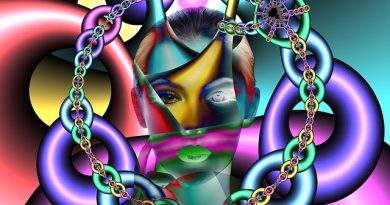Young and Mental Illness-what are Warning Signs?
Young and Mental Illness-what are Warning Signs? Mental illness isn’t just a condition you were born with; Mental illness can develop over time, either as something that is destined to happen or as an illness that develops over time. Although some mental illnesses do not usually appear in young people, such as Alzheimer’s disease, others such as depression can strike in childhood and mental illnesses such as ADHD, despite being diagnosed overpredicted, affecting many children and adults.
Adolescents can suffer from a wide range of mental illnesses and are often affected for the first time more than any other age group due to the rapid brain development and many new circumstances to which they are exposed in late adolescence and early life. about twenty.
Young people are not necessarily particularly vulnerable; however, regardless of the mental illness they were born with, they are more likely to wake up at this stage of their life.
Schizophrenia is a mental illness that usually occurs for the first time in young people. The individual may experience mood swings or paranoia, both of which can be recognized by a loved one and reported to the individual’s doctor. Other warning signs may include youth hearing voices or seeing things that aren’t there. People with schizophrenia may also experience lethargy or lack of emotions and may worsen in their social functions.
Young Adults and Mental Illness-what are Warning Signs?.They may also begin to have difficulty concentrating or following instructions and completing tasks, and their memory may be affected. Patients with schizophrenia also almost always begin to feel depressed before their symptoms escalate.
Depression is another mental illness that is very common in young people. It is characterized by feeling extremely helpless and hopeless and is not the same as “feeling down” or “depressed”. Depression is a serious mental illness that affects millions of Americans and can cause suicidal thoughts as well as eating too much or too little, sleeping too much or not enough, and mood swings.
Depression is not something that people can simply “get over” or “get out of,” and in fact, medication or therapy or a combination of both may be needed before the individual begins to see symptoms.
Their symptoms disappeared. Symptoms of depression can come and go and are similar to but slightly different from those of bipolar disorder.
Bipolar disorder, also known as manic depression, can be controlled with medication. It is characterized by episodes of intense mania or “highs” during which the individual becomes overly enthusiastic or optimistic and may initiate unworkable tasks or plans.
These highs are followed by crashes and intense “lows,” which can be associated with sleeping all day, feelings of hopelessness, suicide attempts, and other symptoms common to depression.
ADHD is more of a disorder than a disease because it usually does not severely impair a young person’s ability to function normally in society, but young adults can develop ADHD, affecting their ability to hold a job. their personal job or function. .
This disorder is often associated with an inability to concentrate, easily distracted, and similar symptoms. It may manifest itself as evidence of near-chronic absentmindedness or an inability to stand still, as well as being overly focused on certain activities.
The diagnosis of mental illness should be entrusted to medical professionals; however, it is often up to the family and loved ones of the affected youth to recognize the symptoms before they can seek treatment.
Many people with mental illness are unaware that they are suffering or are unwilling, for various reasons related to their illness, to seek treatment on their own.
People who love someone affected by the above and other mental illnesses should make a list of the specific symptoms they see so that they can present these symptoms to a psychiatrist. . Symptoms you should look out for include changes in sleeping and eating habits, weight gain or loss, personality changes, inability to function normally, paranoia, aggression, and other unusual behaviors.
Even the feeling that something is wrong with a loved one can get them extra attention or even an investigation to help them get treatment for a mental illness.
No matter what symptoms are displayed, a diagnosis cannot be made until the sick person is taken to a doctor. A person taken to a hospital by the police is likely to be treated and released quickly without giving due regard to their real needs.
The family and loved ones of young people affected by mental illness will support them.




